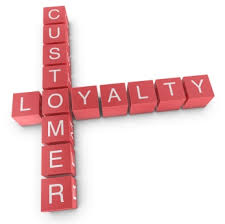Bigger can be better when a company is able to provide a quality product coupled with an aura of uniqueness. Apple has been able to handle this balancing act on its tremendous run up to become the most valuable company (in market capitalization) on the planet. What are some lessons that small businesses can learn from Apple? Let’s revisit how Apple, in its second run, became such a commercial juggernaut.
Apple’s brand is synonymous with innovation, uniqueness, and quality. This is important because Apple products are never the cheapest, yet the customer is still willing to pay extra for the Apple experience. Small businesses, in general, cannot compete on price. The customer experience matters!
Apple has created a loyal community of advocate and influencers that get access to pre-release products to evaluate and to provide candid critique. Small businesses, whether you are a restaurant or a service business should consider fostering such a community of customers and influencers to share their story with others. The advent of social media and blogs provide an inexpensive way to advertise a small business brand.
Small businesses are known for their unique products and personalized service. The niche that is served is desirable for the “creative class” among us. The fine line, however, between Bold vs. Overdone is extremely difficult to know. This is very important because small business sustainable revenues are tied by choosing the right product that brings satisfaction to a good segment of its customer community. Apple understands their customer segment very well and has built their products to serve the needs of teens and young adults.
The loyalty to a brand is key for repeat customers. Apple has built an ecosystem that allows for seamless integration of their products and services. The “switching cost” in time and complexity, for many, can be high. Small businesses are able to use relatively low-cost and available technologies to give each customer their own individual account. By learning more about the wants and needs of their customer base, a profile can be developed. Each time the client interacts with the small business, they should be treated with VIP-like status. This creates a “switching cost” that is easily portable to another business.
For scale-up of any business, large or small, there is a need for a sustainable growth in customers. Technology and the internet allow each small business to become an international company if they have a functioning web-page. The traditional barriers that restrict small businesses to only providing their services to a particular community are no longer in place.
Apple has surpassed the 1 trillion dollar market cap. On its heels are Amazon, Google, and Facebook. The latter three, not long ago (less than 20 years ago) were in the category of startups or small businesses. Now they have taken their place on the list of the world’s top 10 companies. The model for growth has been validated. From small to large, the keys are building a best-in-class product to an influential market segment (teens and young adults), embracing influencers who serve important roles in marketing.
 Authored by: Ayman El Tarabishy, Executive Director of the International Council of Small Business and Professor at The George Washington University and co-author of Information Technology for Small Businesses: Managing the Digital Enterprise.
Authored by: Ayman El Tarabishy, Executive Director of the International Council of Small Business and Professor at The George Washington University and co-author of Information Technology for Small Businesses: Managing the Digital Enterprise.

